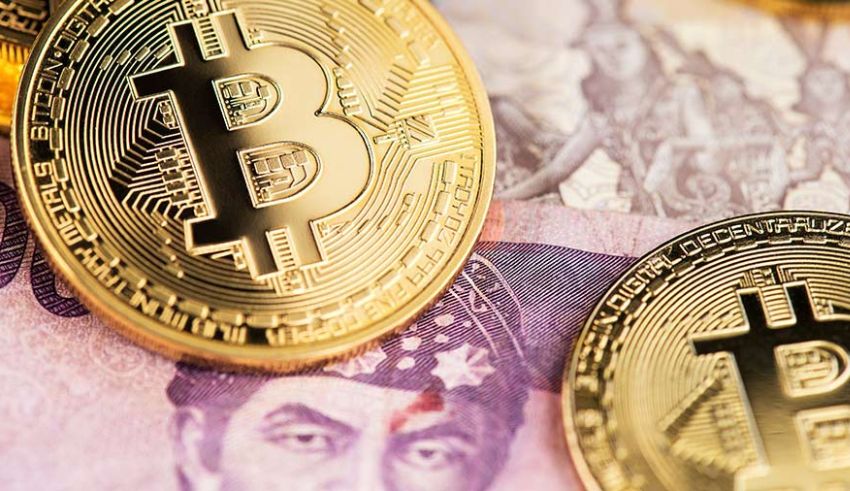
On July 20, 2023, Indonesia opened the first state-backed cryptocurrency exchange under the Commodities Futures Trading Supervisory Agency’s oversight. This ground-breaking program promotes a secure and ethical trading environment while strengthening the legal framework governing the nation’s thriving cryptocurrency industry. The newly launched cryptocurrency exchange lists authorised cryptocurrency firms, including well-known brands like Binance, Ripple, Ethereum, Tether, and Bitcoin. The move aims to facilitate investments in the digital asset class despite the government’s current ban on using cryptocurrency as a payment method. The nation has an estimated 17 million Bitcoin users, driving up demand for digital assets.
A Booming Crypto Sector in Indonesia
Indonesia has seen a striking increase in bitcoin trade volumes over the past several years. The entire book of cryptocurrency trading in 2021 impressively surpassed US$56 billion, up from US$4.6 billion in 2020. Numerous variables, including legislative reforms that allowed cryptocurrencies to be traded as commodities in 2019 and an increase in investments during the economic chaos brought on by the pandemic in 2021, should be credited for this tremendous growth. However, the amount of cryptocurrency traded fell somewhat in the first half of 2023, to US$4.42 billion, in part due to recent hikes in interest rates.
Regulatory Changes and Licensing Requirements
The Commodities Futures Trading Supervisory Agency adopted Regulation 8/2022 in November 2022 to control and organise the cryptocurrency industry. Businesses must comply with the following requirements and receive a crypto exchange provider (CEP) license to operate legally:
- A minimum of 100 billion rupiahs ($6.6 million) in paid-up capital.
- At least 50 billion rupiahs ($3.3 million) in equity.
- A platform for online trading digital assets connected to futures clearing houses and exchanges.
- An organisational structure with departments for IT, customer service, audit, legal, accounting, and finance.
- A Certified Information Systems Security Professional (CISSP) must be present.
- A CEP holder is only permitted to own up to 20% of the shares of another CEP due to ownership restrictions.
- Only one CEP or prospective CEP may have foreign ownership.
- The board of Directors and Commissioners must have at least two-thirds of Indonesian nationals.
- The Commodities Futures Trading Supervisory Agency must receive monthly reports, business plan reports, and business achievement reports.
- To receive a CEP license, foreign enterprises must create a local Indonesian entity.
The Fintech Sector and Investment Opportunities in Indonesia
In Southeast Asia, Indonesia’s fintech sector is recognised for its fierce competition and vitality, and it has given birth to four unicorns and one decacorn. Peer-to-peer (P2P) lending platforms account for 50% of the sector’s funding, and e-payment media account for 23%. Although many fintech businesses are functioning in Indonesia, there is still untapped potential, especially given that 60 per cent of the workforce works in the informal sector and has no access to traditional bank financing.
P2P Lending: A Solution for Indonesia’s Underbanked
Due to many considerations, including particular payment terms, types of collateral, and credit quality, many local micro, small, and medium-sized firms (MSMEs) find their business models incompatible with typical banking products. By offering cutting-edge financing models capable of reaching Indonesia’s 47 million underbanked and 92 million unbanked adults, foreign fintech companies have the chance to close this gap. P2P lending totalled US$7.7 billion in 2020 and covered more than 26 million borrowers nationwide.
Keep Reading
E-Wallets: Facilitating Digital Payment Adoption
In 2020, electronic money transactions increased by 173 per cent, making them crucial to Indonesian consumers. The fact that Indonesia has higher internet and smartphone penetration rates than the ASEAN area explains its enormous potential as a battleground for digital payment apps. Additionally, the 196 million people who have access to the internet demonstrate how important the middle class is to the expansion of the digital economy.
To reach the unbanked population, foreign investors wishing to enter Indonesia’s e-wallet market must prioritise providing customer-centric experiences and flexible payment methods that appeal to local preferences, like mobile banking and payments through convenience stores.
The world’s first state-backed cryptocurrency exchange was officially launched in Indonesia, marking a significant step in the nation’s commitment to governing and assisting its burgeoning crypto industry. Indonesia wants to build a robust ecosystem for digital assets by promoting safe and open crypto trading and investments. Additionally, foreign investors have profitable prospects to participate in Indonesia’s fast-expanding digital economy thanks to the opportunities in the country’s fintech industry, particularly in P2P lending and e-wallets. Innovation and cooperation between domestic and international firms are essential to realising Indonesia’s full potential as a fintech hub.



























